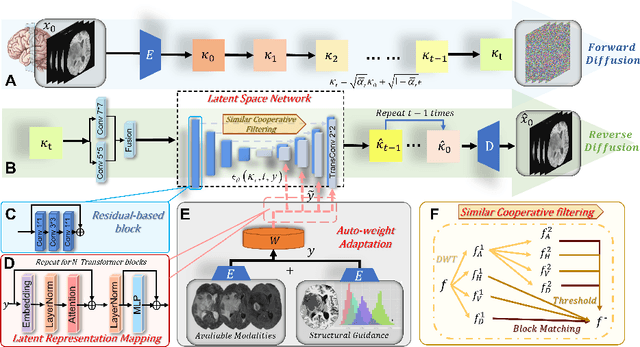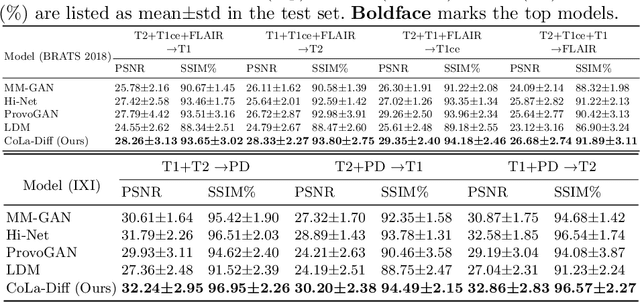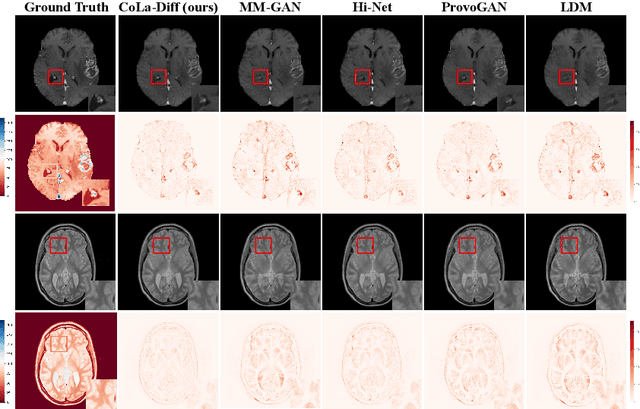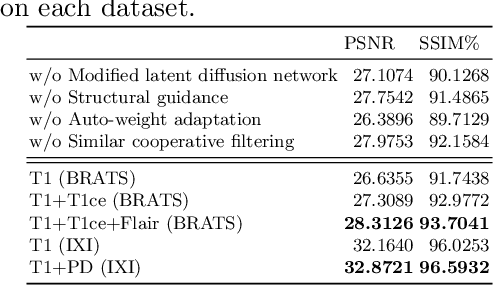CoLa-Diff: Conditional Latent Diffusion Model for Multi-Modal MRI Synthesis
Paper and Code
Mar 24, 2023



MRI synthesis promises to mitigate the challenge of missing MRI modality in clinical practice. Diffusion model has emerged as an effective technique for image synthesis by modelling complex and variable data distributions. However, most diffusion-based MRI synthesis models are using a single modality. As they operate in the original image domain, they are memory-intensive and less feasible for multi-modal synthesis. Moreover, they often fail to preserve the anatomical structure in MRI. Further, balancing the multiple conditions from multi-modal MRI inputs is crucial for multi-modal synthesis. Here, we propose the first diffusion-based multi-modality MRI synthesis model, namely Conditioned Latent Diffusion Model (CoLa-Diff). To reduce memory consumption, we design CoLa-Diff to operate in the latent space. We propose a novel network architecture, e.g., similar cooperative filtering, to solve the possible compression and noise in latent space. To better maintain the anatomical structure, brain region masks are introduced as the priors of density distributions to guide diffusion process. We further present auto-weight adaptation to employ multi-modal information effectively. Our experiments demonstrate that CoLa-Diff outperforms other state-of-the-art MRI synthesis methods, promising to serve as an effective tool for multi-modal MRI synthesis.
 Add to Chrome
Add to Chrome Add to Firefox
Add to Firefox Add to Edge
Add to Edge